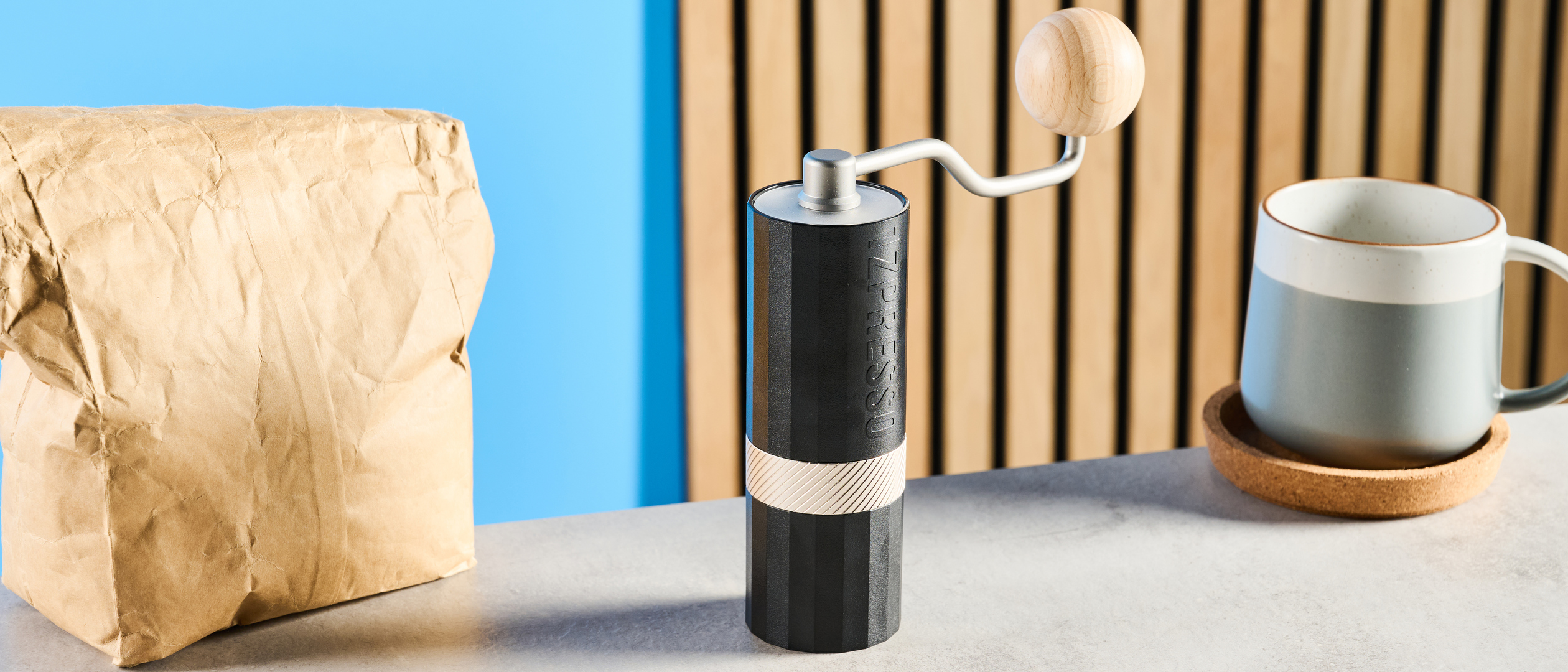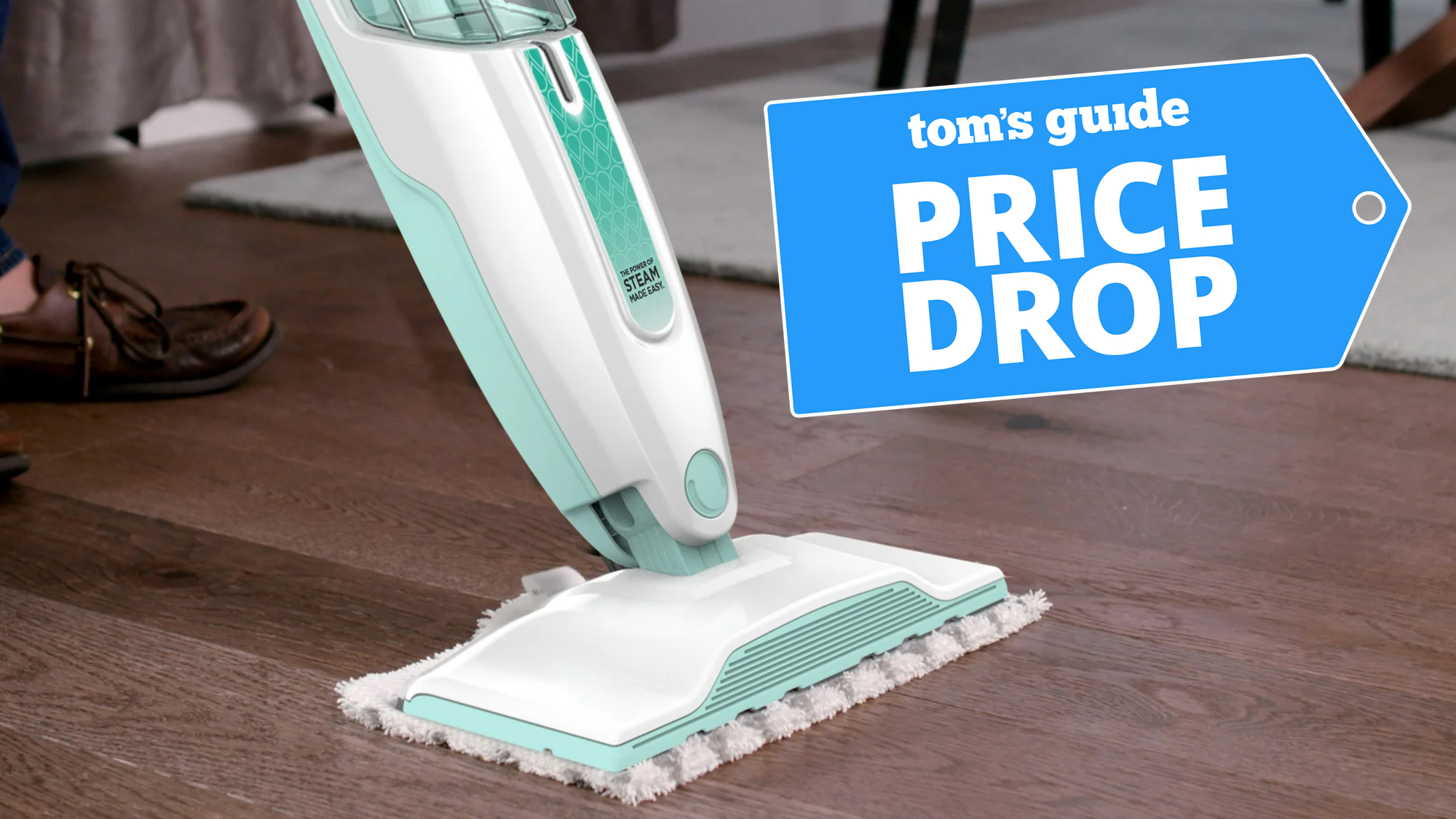Tom's Guide Verdict
The 1Zpresso Q Air provides lots of versatility in a compact package, so you can take your coffee setup with you wherever you are. Finer grind consistencies require a lot of elbow grease, and you’ll need to get your head around the sheer amount of adjustment on offer. Aside, from that, this is a great grinder for beginners that offers ample accuracy and control.
Pros
- +
Can grind espresso to cold brew
- +
Compact size good for travel and storage
- +
Lots of adjustment
- +
Good retention
- +
Great price
Cons
- -
Adjustment is confusing at first
- -
Takes a lot of elbow grease to grind espresso
Why you can trust Tom's Guide
Getting the perfect grind for your beans is half the battle when perfecting your caffeine repertoire, and the 1Zpresso Q Air offers lots of versatility in a compact package, as you’d expect from one of the best coffee grinders on the market.
This grinder is perfect for beginners as its cheaper build means it has an accessible price, but the low retention and uniform performance mean that there is room for growth in your coffee experience.
Sure, you need to have some muscle to grind your coffee beans fine enough for your espresso, but if you’re more into french press or pour-over coffee in the morning then you can have those beans ready in no time.
The Q Air offers a lot of adjustment, which can take some getting used to. But once you get your head around it, there’s not much that can go wrong with this grinder.
Find out more in my full 1Zpresso Q Air review.
1Zpresso Q Air review: Specs
1Zpresso Q Air review: Price & availability
The 1Zpresso Q Air is priced at $69 at Amazon U.S. / £69 at Amazon U.K.. For a hand coffee grinder this is an attractive price, and much cheaper than the Wacaco Exagrind ($119) or the famed (and fantastic) Comandante C40 MK4 ($323).
At this price, the grinder is perfect for beginners but you sacrifice premium features (more on that later).
The Q Air is available in black, blue, grey and pink/purple. I tested the black version.
1Zpresso Q Air review: Design
The 1Zpresso Q Air is an incredibly sleek-looking gadget that will surely fit right into any kitchen setup. The grinder is mostly made of plastic with the logo embossed down the side, which is subtle unlike the Comandante C40’s in-your-face military-themed branding.
The collar of the burr section in the middle of the grinder is made of aluminum alloy, which is very sturdy. Inside this collar, the Q Air has 38mm heptagonal stainless steel burrs for increased ease of grinding and durability of the burrs.
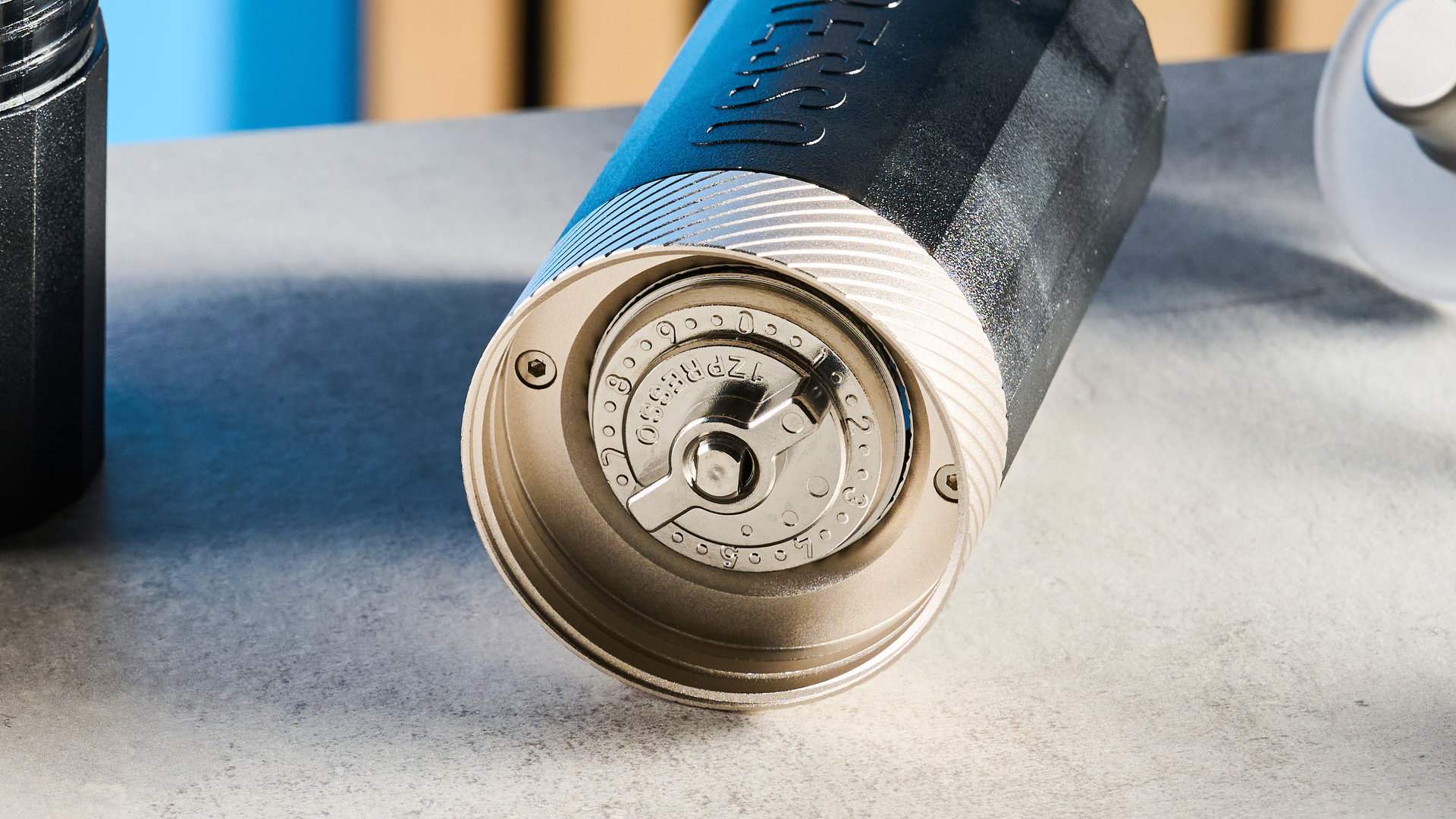
The chamber of the main body where the coffee beans go is closed by the lid of the crank handle. This is also made of stainless steel with a wooden grip so you don’t have to worry about putting too much strain on it as it is super durable.
The compact size of the 1Zpresso Q Air means it can be taken pretty much anywhere, and 1Zpresso claims it will even fit inside the plunger of an Aeropress Go. We haven’t tested the Go yet, but I put the Q-Air inside a standard AeroPress where it fit easily!
That means if you want to take a camping trip and not sacrifice your freshly ground beans in the morning, you are good to go. We didn't try to fit the grinder in the AeroPress Premium we use for testing, but that thing is a metal beast and it's unlikely you'll be taking such a heavy piece of gear camping.
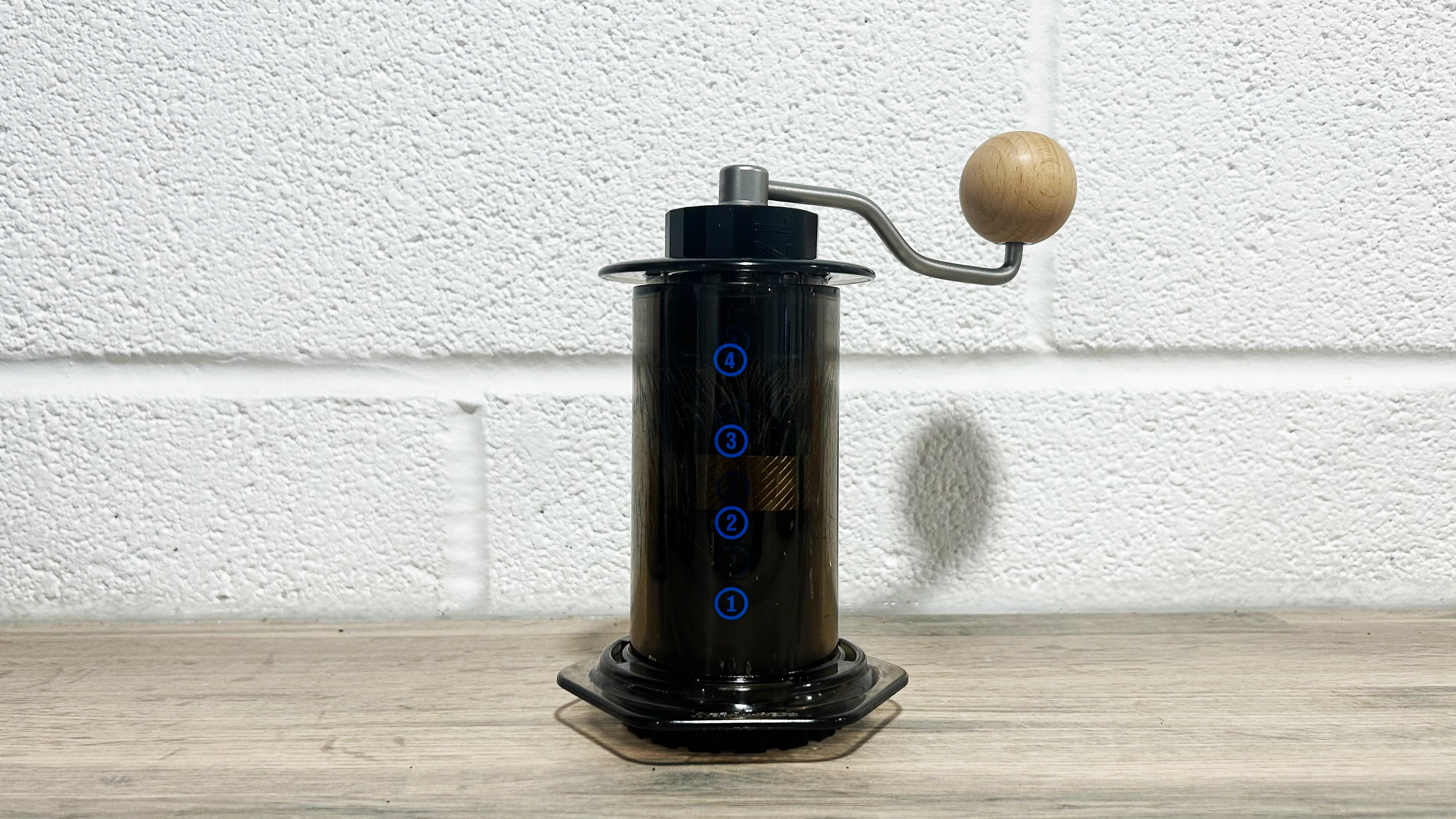
And at 365g, the Q Air isn’t going to be weighing you down either. However, its compact size does mean it can only grind 15-20g of beans at a time, depending on the beans and roast — so only enough for one.
The cheap price tag means there are sacrifices to the overall design compared to other grinders in the 1Zpresso range. The 1Zpresso J Ultra ($199) has a larger capacity at 38g and is made from metal rather than plastic.
Since the catch-cup is plastic and the burr section is alloy, the threads on the catch-cup could wear down quickly. However, for a beginner model, I think these are fair trade-offs for the price.
1Zpresso Q Air review: Grind adjustment
The 1Zpresso took me a second to wrap my head around, but once I got it, it was straight forward. The grinder has around 4 full rotations of the internal adjustment dial, and each rotation moves the burr 0.75mm for a 3mm total adjustment range. This means the grinder is capable of grinding for espresso all the way to French press or cold brew.
Within each rotation, there are 30 ‘clicks’ and each ‘click’ adjusts the burrs by around 25 microns. This means that there is plenty of adjustment so you can refine your brew as you please.
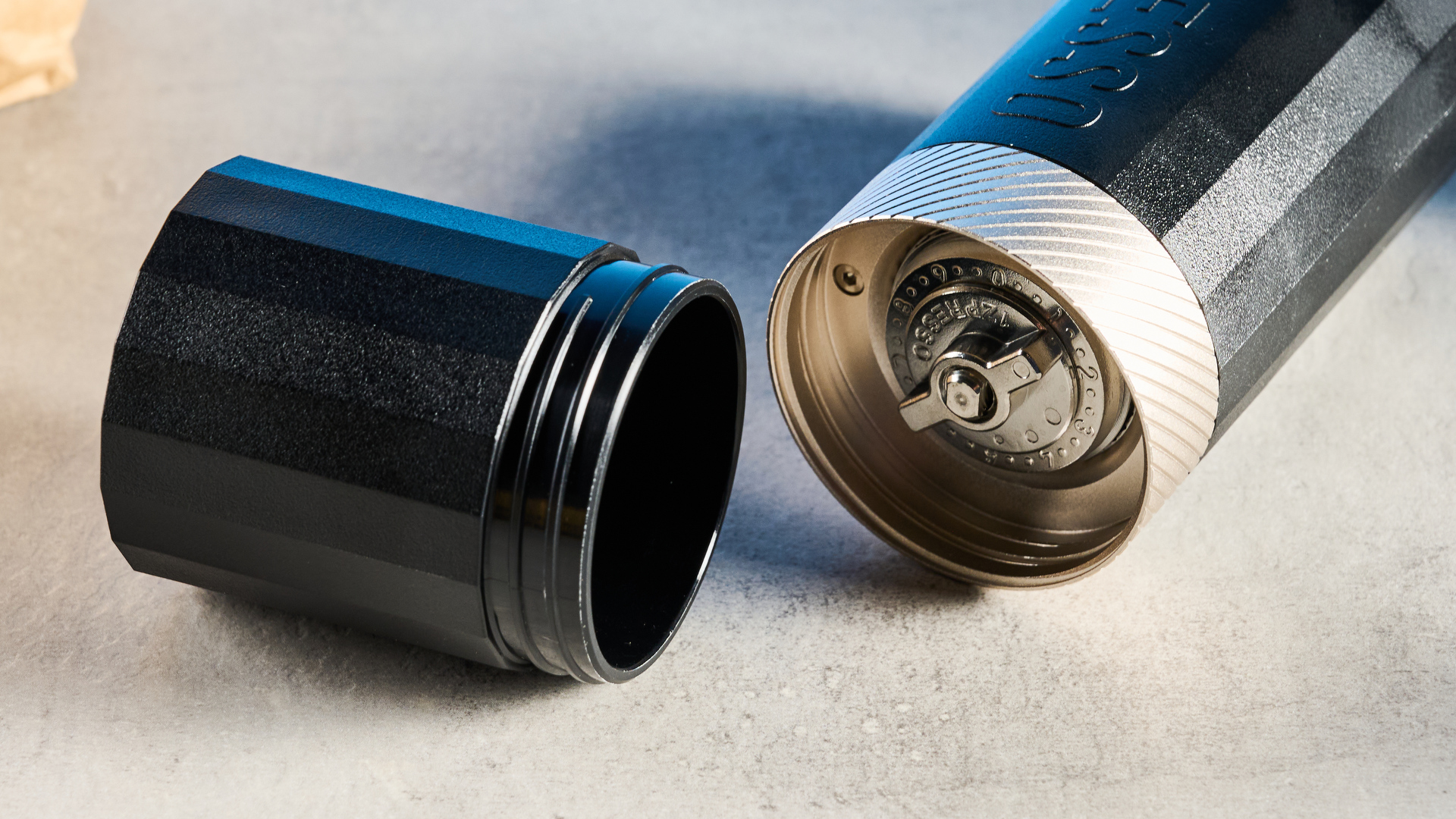
However, this much adjustment can make it fiddly when trying to switch between brew/grind types. What’s more, if you’re a beginner (which is reasonable to assume given the price of the Q Air), you may also find this much control a little too complicated.
Saying that, the grinder itself is easy to adjust by simply turning the internal adjustment knob counter clockwise to achieve a finer / coarser grind.
1Zpresso Q Air review: Performance
To test out how well the 1Zpresso Q Air performs I considered how easy it is to use, if it was affected by static, uniformity, and retention. Here’s what I found.
Ease of use
For such a compact device, the 1Zpresso is surprisingly easy to use and customize to get your desired grind. As I mentioned in the ‘Grind adjustment’ section above, it relies on some previous knowledge and experience with a coffee grinder, but is easy enough to pick up once you work out the ideal grind setting(s) for your chosen brew type(s).
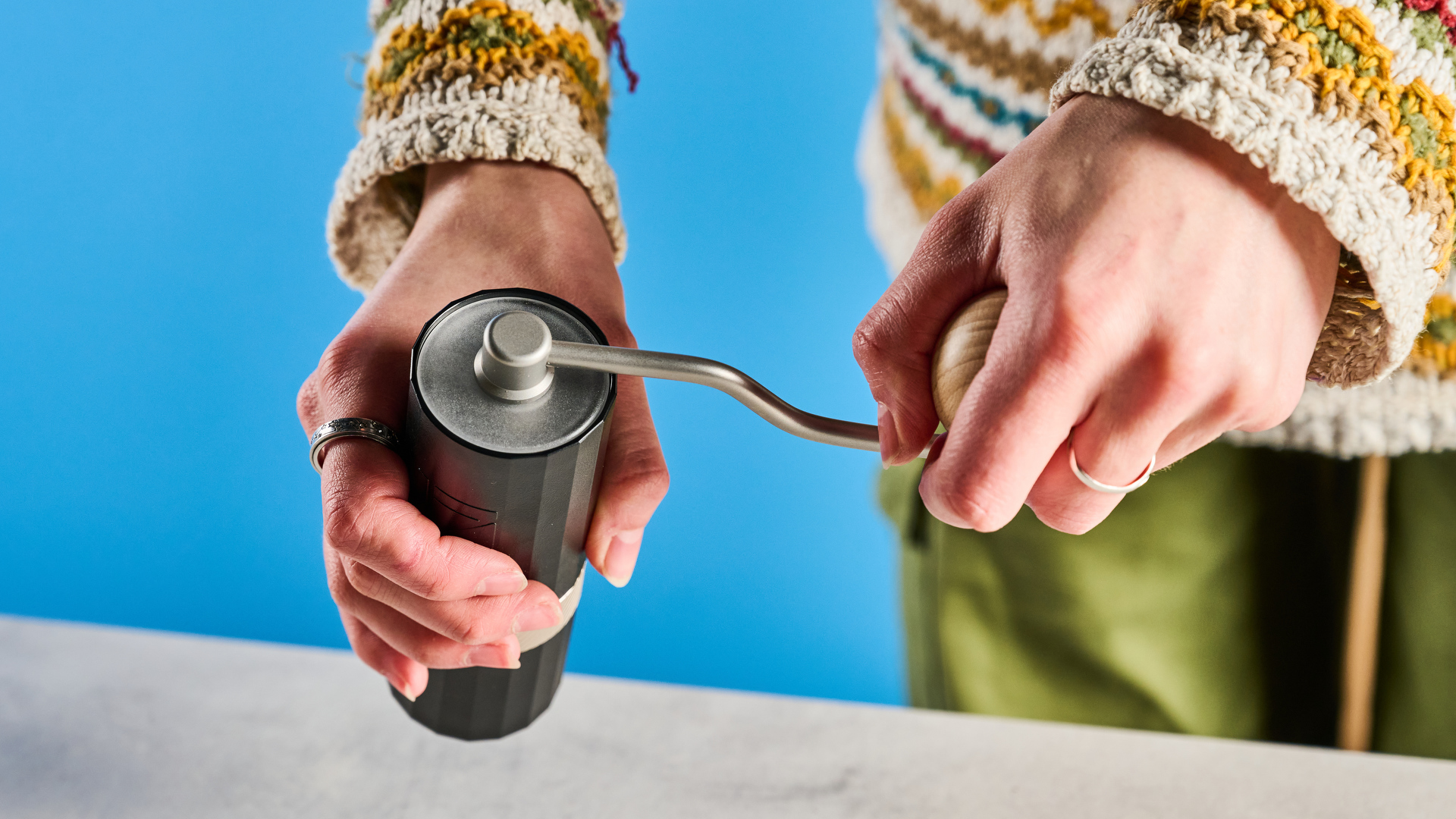
The device is manual, so depending on how much coffee you want to grind in one go and how fine you’re grinding, you are going to need a bit of muscle power. The grinder comes with a rubber grip to make the process easier. It’s easy enough to grind on the coarser settings with less resistance, but to grind for espresso you need to put in a lot of elbow grease.
Static & clumping
The 1Zpresso Q Air created some static during testing, but not enough to be a real issue. Any clumping caused by static came away from the grinder with a light tap on the side.
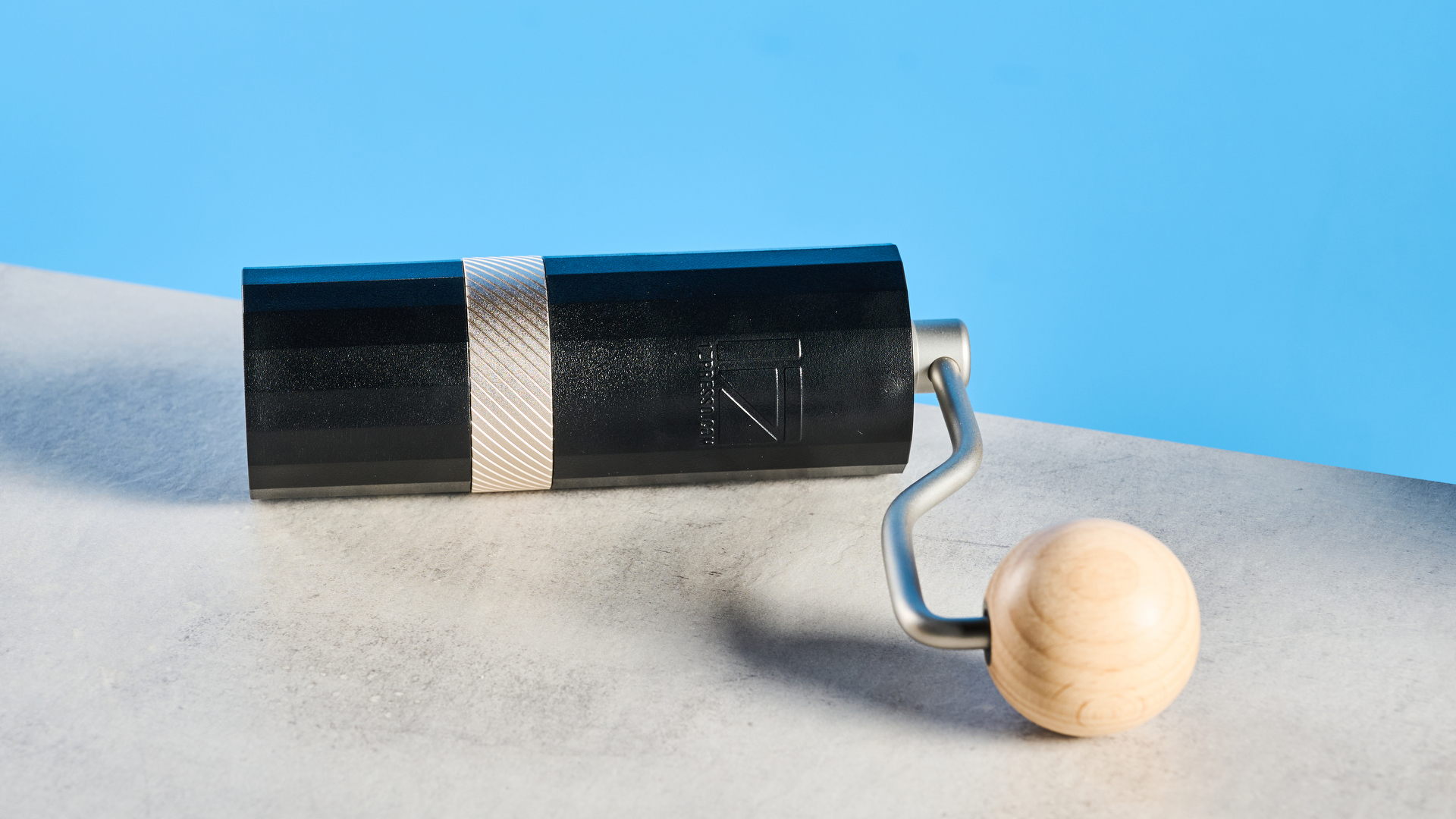
As with any coffee grinder though, how much static or clumping you get is pretty much dependent on your unique environmental factors such as humidity and even what type of coffee beans you use. For my testing I used a dark roast bean which is typically oilier than a light roast, so I would have expected to see more static and clumping here.
Uniformity
When testing out coffee grinders it is important to get a uniform grind as this means the final result of your coffee will be more consistent and, depending on brew type, better. This is especially true for espresso and pour over to achieve the best flavour profiles.
When testing the uniformity of the 1Zpresso Q Air I was looking for big jumps from fine to coarse settings using the Kruve coffee sifters to check the grind size. Big jumps from one sieve size to another mean that all the coffee is getting through one pan but not the next, equating to a more uniform grind.
Grind size / adjustment setting | 300μm | 500μm | 800μm | 1100μm | 1400μm |
1 (finest) | 0% | 90% | 100% | 100% | 100% |
10 | 0% | 70% | 100% | 100% | 100% |
20 | 0% | 40% | 100% | 100% | 100% |
30 | 0% | 5% | 90% | 95% | 100% |
60 | 0% | 0% | 50% | 80% | 95% |
90 | 0% | 0% | 0% | 40% | 80% |
120 (coarsest) | 0% | 0% | 0% | 5% | 20% |
I found that the grind produced by the Q Air was pretty uniform. Since there are 30 ‘clicks’ in each rotation, I tried out a few settings within the first rotation and found the best position for espresso was around 24 ‘clicks’ (0.8 of a rotation) with our Hard Lines test coffee beans.
For pour over coffee though, a coarser grind is needed and I found this worked best at around 60 ‘clicks’ (2 full rotations).
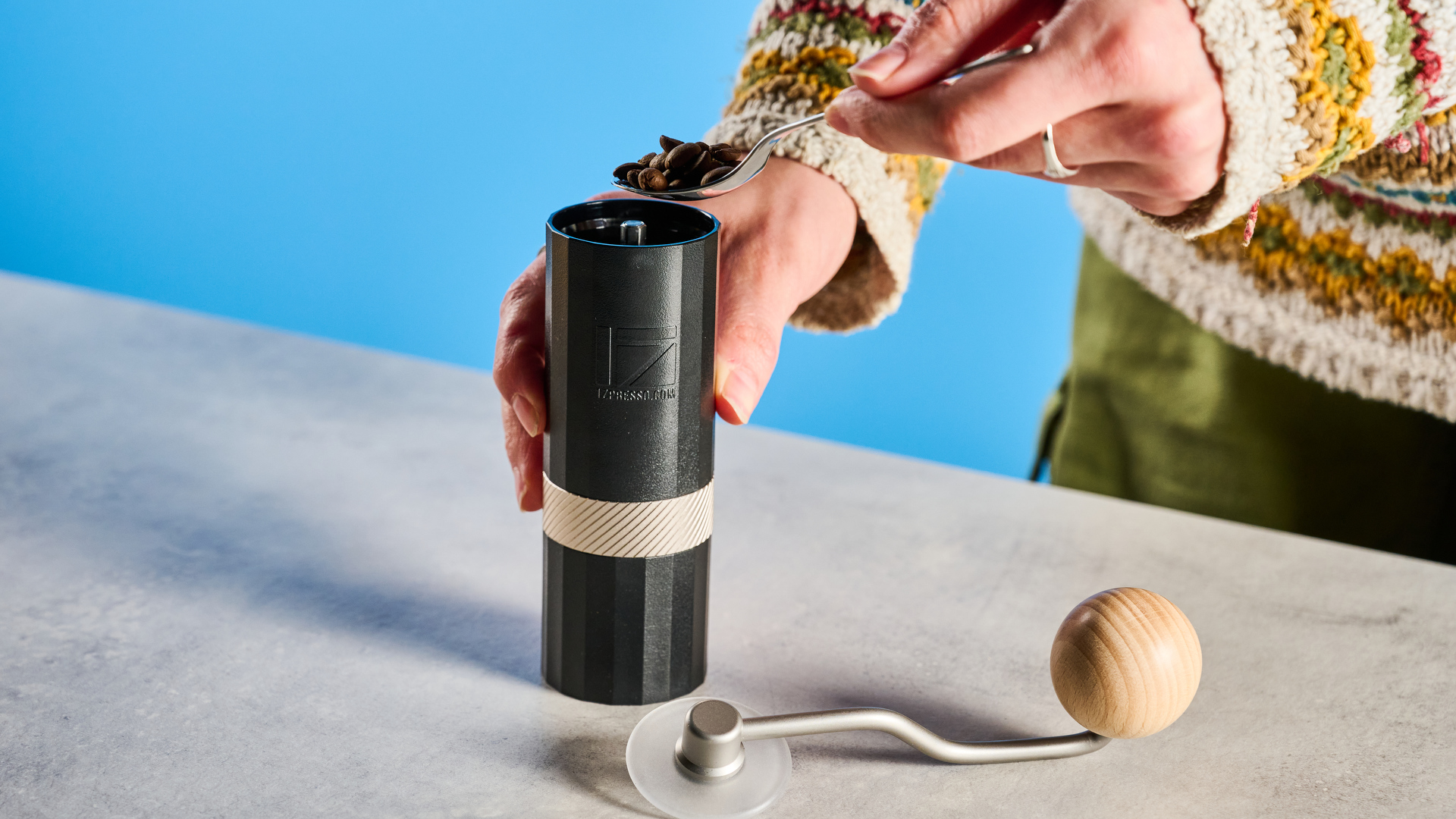
As you can see, the grinder has the ability to create a grind fine enough for espresso and coarse enough for cold brew or french press coffee. This makes it a really versatile grinder, but if you are looking for a more refined espresso grind at home, maybe check out the Eureka Mignon Specialita.
Retention
By looking at retention we can see how much of the coffee typically remains in the grinder. Lots of coffee stuck in your grinder results in less accurate doses going into your brew, affecting consistency between drinks. Thankfully, the heptagonal burrs on the 1Zpresso Q Air help to lower retention.
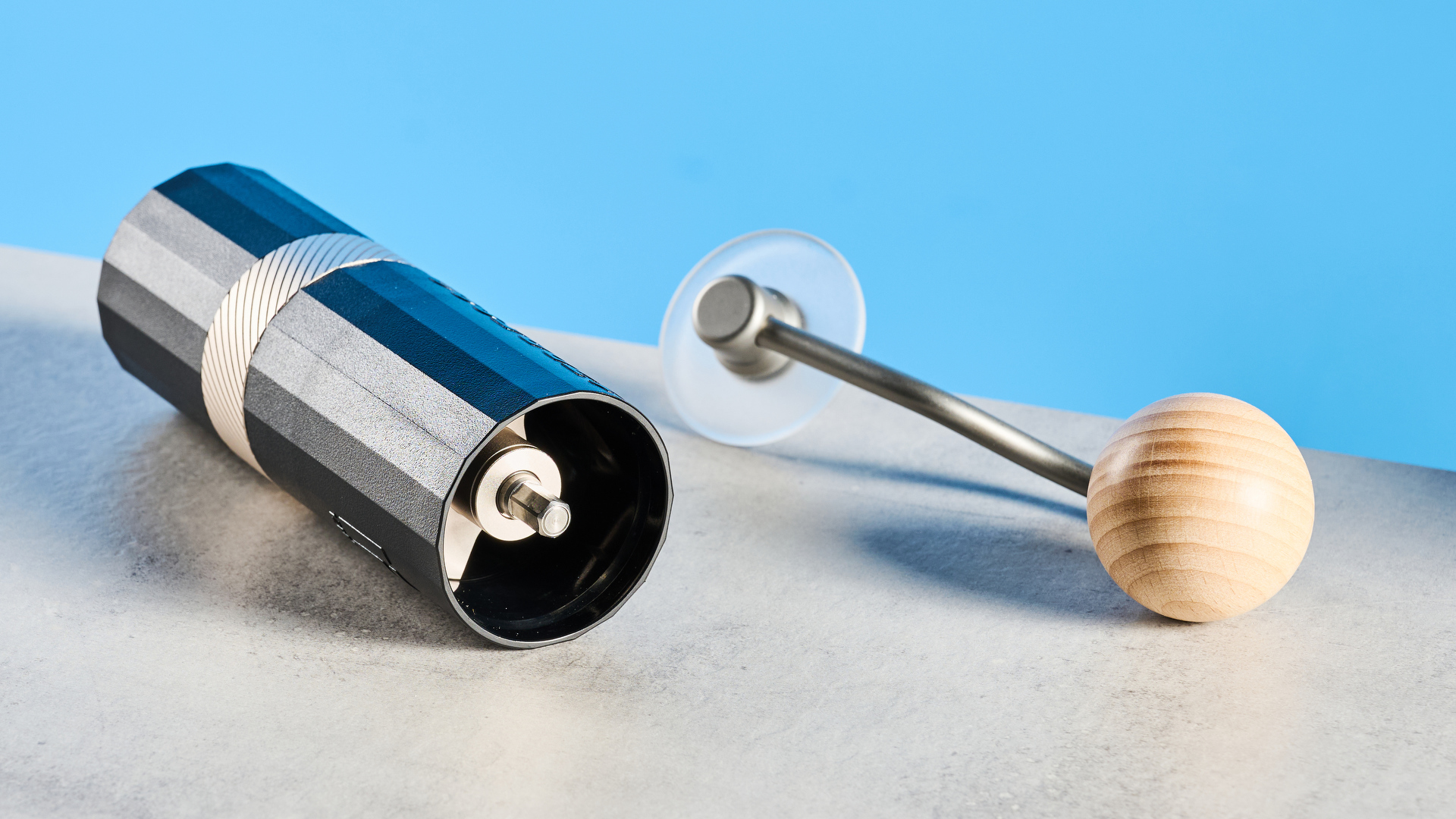
To test out the retention of the Q Air I weighed out 20g of coffee beans on an Acaia Lunar Scale. I then ground these on a medium-fine setting and weighed the grounds to see how much the grinder produced. I repeated this process three times to gain an average retention and made sure to clean the burrs with air each time
Weight before grinding | Weight after grinding | Retention | Average retention |
20g | 20g | 0g | - |
20g | 19.9g | 0.1g | - |
20g | 20g | 0g | 3% (0.03g) |
I was expecting more retention for the mid-range price of this manual grinder, but was impressed when there was hardly any. As you can see in the results above, the average retention was so close to 0% as to be negligible.
When Tom’s Guide tested the Comandante C40 MK4 there was an average retention of 2.75%, which just proves that the small but mighty 1Zpresso Q Air can play in the big leagues.
1Zpresso Q Air review: Storage & maintenance
The compact size of the 1Zpresso means that it can fit anywhere at just 5.7 inches tall. It is also easily transportable if you want freshly ground coffee on a trip or at work.
The Q Air should not be cleaned with water as this can damage and rust the stainless steel burrs and affect their performance. Instead, unscrew the plastic catch-cup, wash it on its own, and then reattach once dry.
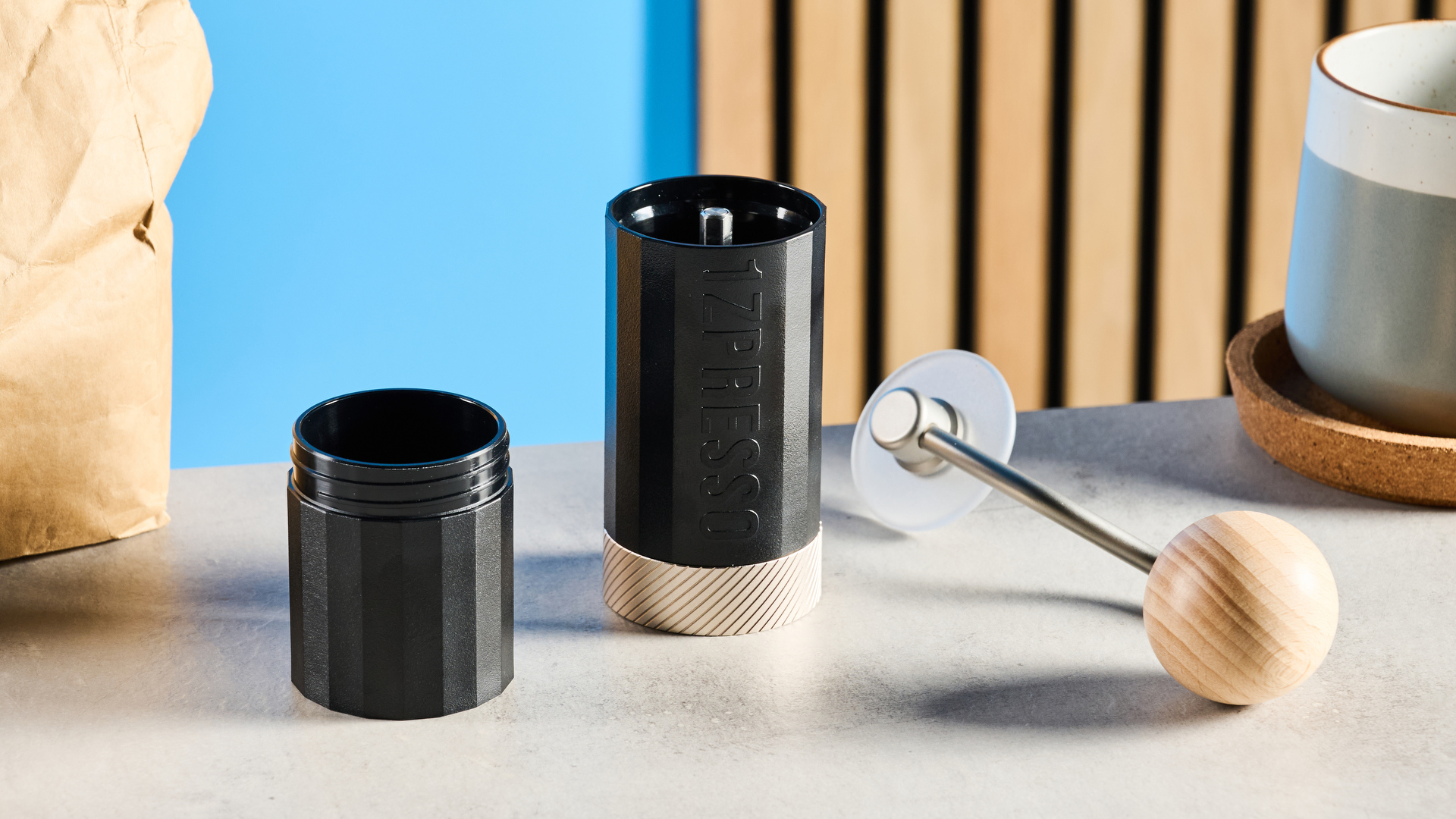
For a deeper clean of the whole system, the grinder can be dismantled by hand and the burrs cleaned with a brush and air blower.
1Zpresso Q Air review: Verdict
The 1Zpresso Q Air was super easy to use and provides a lot of versatility for such a compact device. This means that you can take your coffee set up with you wherever you are, and no matter what you’re grinding for. From espresso to French Press, this little grinder can do it all.
Finer grinds require a lot of elbow grease, but that’s par for the course with hand grinders, and the Q Air’s rubber grip does make it easier. There is also a lot of adjustment to get your head around at first with 120 ‘clicks’ between the finest and coarsest setting, but once you find your ideal settings (and memorize the number of ‘clicks’), you can’t go wrong.
At only $60 I would certainly recommend this grinder for beginners as it provides accurate grinds with a whole lot of control, perfect for experimenting to get the ideal brew.

Ashley is a staff writer on the the Reviews team at Tom’s Guide. She has a master’s degree in Magazine Journalism from Cardiff University and a BA in Journalism, Media and Sociology. She has written for titles including Women’s Health UK, writing health and wellness stories, and Virgin Radio UK, specializing in entertainment news and celebrity interviews. She has reported on a variety of topics including music, literature, motorsport, entertainment and health, and has her own bookish newsletter, Ashley’s Reading Nook.She has previously reviewed live music events, books, and wellness products but finding the best way to listen to new music releases is essential for Ashley, so discovering the top audio equipment on the market is what she does best.When she is not testing out the latest tech, you can find her either curled up with a cup of tea and a good fantasy novel or out hiking.
You must confirm your public display name before commenting
Please logout and then login again, you will then be prompted to enter your display name.
